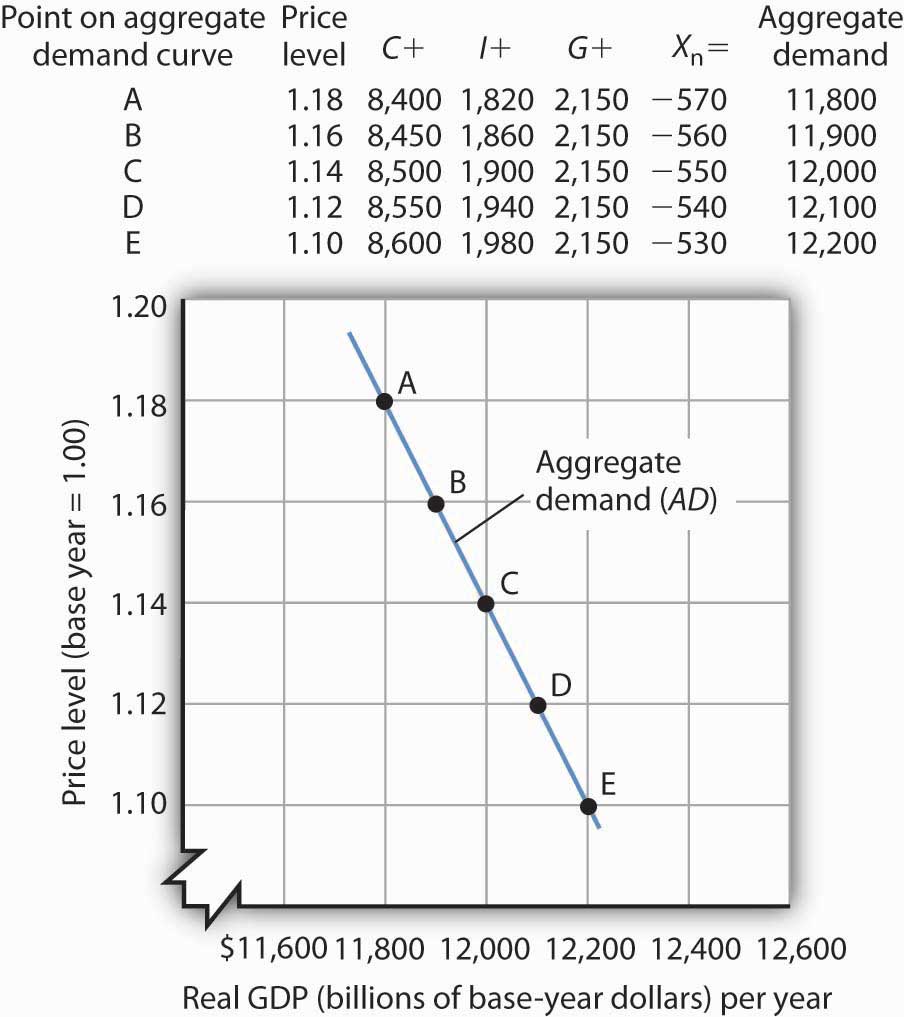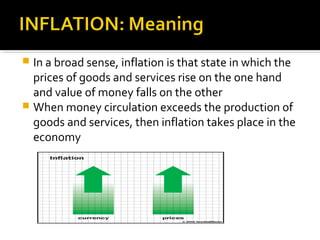Hold onto your wallets, folks, because we’re diving into the wild and wacky world of inflation and deflation in the economy! It’s a rollercoaster ride of rising prices and falling currencies, where the only thing guaranteed is confusion. But fear not, dear readers, for we’re here to break it down and make sense of it all. So buckle up and get ready to ride the economic wave – it’s going to be a bumpy (and slightly bizarre) ride!
The Difference Between Inflation and Deflation
Inflation and deflation are like two rival siblings constantly fighting for attention in the economic world. Let’s break down the key differences between the two, shall we?
- Price Movement: Inflation is like that friend who always seems to have a never-ending appetite – prices just keep going up and up. On the other hand, deflation is more like that friend who’s always on a diet – prices are constantly dropping, making everything seem like a bargain.
- Impact on Economy: Inflation can be a bit of a party crasher, leading to higher interest rates, decreased purchasing power, and just an overall sense of financial unease. Deflation, on the other hand, can feel like winning the lottery – everything seems cheaper, but it also brings its own set of economic challenges like decreased consumer spending and potential job losses.
So, the next time you hear people talking about inflation and deflation, just remember – they’re like the yin and yang of the economic world, constantly shifting and balancing each other out. Who knew economics could be so dramatic, right?

Causes of Inflation in the Economy
Have you ever wondered what causes inflation in the economy? Well, wonder no more, because we’re about to break it down for you in the most amusing way possible!
First and foremost, let’s talk about everyone’s favorite scapegoat – the government! These guys love printing money like it’s going out of style. When there’s too much money floating around, prices start to rise faster than a hot air balloon on a windy day. They just can’t help themselves, can they?
But that’s not all – greedy businesses also play a role in causing inflation. When they see that people are willing to pay more for things, they jack up their prices faster than you can say “rip-off”. It’s like a never-ending cycle of price hikes and wallet-draining madness.
And let’s not forget about good old supply and demand. When there’s not enough of something to go around, people start bidding higher and higher prices to get their hands on it. It’s like a game of economic musical chairs, but with way more cash at stake. So next time you’re cursing the rising cost of living, just remember – there’s always a reason behind the madness!
Effects of Inflation on Consumers and Businesses
Consumers:
For consumers, dealing with inflation can feel like trying to catch a greased pig at a county fair – frustrating and never-ending. The rising prices of goods and services mean that your hard-earned money suddenly doesn’t stretch as far as it used to. You might find yourself having to cut back on fancy lattes and avocado toast in order to afford the basics like rent and groceries. It’s like a real-life game of Monopoly where you keep landing on the luxury tax square.
Businesses:
Businesses, on the other hand, can view inflation as a double-edged sword – one that’s sharp on both sides. On one hand, they might be able to raise prices on their products or services to offset the increased costs of production. But on the other hand, they risk alienating their customer base who are already feeling the pinch of inflation. It’s like walking a tightrope while juggling flaming bowling pins and hoping you don’t get burned.
Overall, the are a delicate dance of supply and demand, prices and profits. It’s like being in a waltz where one wrong step can send everyone tumbling to the ground. So, grab your top hat and tails, folks, because we’re all just trying to navigate this crazy inflationary ballroom without stepping on each other’s toes.

Causes of Deflation in the Economy
Deflation in the economy is like that one friend who always seems to never have any money. No matter how much they save or try to budget, they just can’t seem to make their finances work. So, what exactly causes this mysterious phenomenon?
Overproduction: Imagine a world where there are so many hamburgers that no one wants to buy them anymore. That’s kind of what happens when there’s overproduction in the economy. When there are too many goods and not enough people willing to buy them, prices start to drop like hot potatoes.
Decrease in Consumer Spending: It’s like going to a party and realizing you forgot your wallet. When consumers start to cut back on their spending, businesses suffer and are forced to lower their prices in order to sell their products. This decrease in consumer spending can set off a chain reaction of deflation in the economy.
Technological Advancements: Technology is like that cool cousin who always has the latest gadgets. While technological advancements can make our lives easier, they can also lead to deflation in the economy. As companies become more efficient and produce goods at a lower cost, prices start to drop, leading to deflationary pressures.

Effects of Deflation on Consumers and Businesses
When deflation hits, consumers may initially rejoice at the lower prices, but soon realize the detrimental effects on their wallets. With prices dropping, consumers may hold off on making purchases in anticipation of even lower prices, leading to a decrease in overall spending and economic activity.
Businesses also feel the sting of deflation, as falling prices mean shrinking profits. This can lead to cost-cutting measures such as layoffs, reduced wages, and even closures. Consumer confidence drops as uncertainty about the economy grows, further exacerbating the downward spiral.
As businesses struggle to stay afloat, they may resort to desperate measures to attract customers, such as slashing prices even further or offering unsustainable discounts. This can create a race to the bottom, where businesses compete to see who can offer the lowest prices, further eroding profits and stability in the market.
In the end, deflation may seem like a bargain at first, but the long-term effects on both consumers and businesses can be devastating. So next time you see those tempting sale signs, remember that sometimes a good deal isn’t always what it seems.
How Governments Respond to Inflation and Deflation
When faced with inflation, governments often resort to a variety of tactics to combat rising prices and keep the economy stable. Some of the most common responses include:
- Monetary Policy: This involves controlling the supply of money in the economy through mechanisms such as interest rate adjustments and open market operations.
- Fiscal Policy: Governments may also adjust their spending and taxation policies to influence aggregate demand and curb inflationary pressures.
- Price Controls: In extreme cases, governments may impose price controls on essential goods and services to prevent runaway price hikes.
On the flip side, when deflation becomes a concern, governments may need to take more drastic measures to stimulate economic activity and encourage spending. Some possible responses include:
- Quantitative Easing: This involves injecting money into the economy by purchasing government securities, thus increasing liquidity and boosting demand.
- Expansionary Monetary Policy: Central banks may lower interest rates and engage in other measures to make borrowing cheaper and stimulate investment.
- Direct Stimulus Measures: Governments may also implement direct stimulus packages to encourage consumer spending and business investment.
Strategies for Managing Inflation and Deflation in the Economy
When it comes to dealing with inflation and deflation, it’s important to have a game plan in place. Here are some hilarious strategies to help you navigate these economic ups and downs:
- Embrace the Rollercoaster: Instead of panicking when prices go up or down, why not just enjoy the ride? Grab some popcorn and enjoy the show as the economy takes you on a wild ride.
- Stock Up on Supplies: When inflation hits, be sure to stock up on essentials like toilet paper and canned goods. You never know when the next shortage will strike, so it’s best to be prepared.
- Start a Bartering System: If money becomes worthless during a period of hyperinflation, why not trade goods and services instead? Offer to mow your neighbor’s lawn in exchange for a dozen eggs. It’s the new economy, baby!
Remember, when it comes to managing inflation and deflation, a little humor can go a long way. So crack a joke, lighten the mood, and remember that we’re all in this economic circus together!
FAQs
Will my money lose value if there is inflation?
Yes, your money will become as worthless as Monopoly money dipped in lemon juice.
How does deflation impact consumers?
Deflation makes consumers feel like they’re playing a never-ending game of tag with money, constantly trying to catch up but never quite reaching their goal.
What are the effects of inflation on businesses?
Inflation can make businesses feel like they’re stuck in a hamster wheel, running endlessly but never getting anywhere.
Which is worse for the economy: inflation or deflation?
It’s like trying to choose between getting a paper cut or stepping on a LEGO – both options are equally painful in their own unique ways.
How can individuals protect themselves from the impacts of inflation and deflation?
Carry around a lucky rabbit’s foot, a four-leaf clover, and a horseshoe at all times – just in case.
—
In conclusion, don’t let inflation and deflation deflate your spirits!
Remember, economic ups and downs are a natural part of the financial rollercoaster we all ride. Just like a good theme park ride, try to hang on tight and enjoy the wild ride. Keep an eye on those prices, but don’t let them scare you off track. With a little bit of knowledge and a whole lot of humor, you’ll be able to navigate the twists and turns of inflation and deflation like a pro.
So buckle up, grab your financial safety goggles, and get ready for the ride of your life. And remember, even when the economy feels like a never-ending loop-de-loop, just keep holding on and enjoying the thrill.






